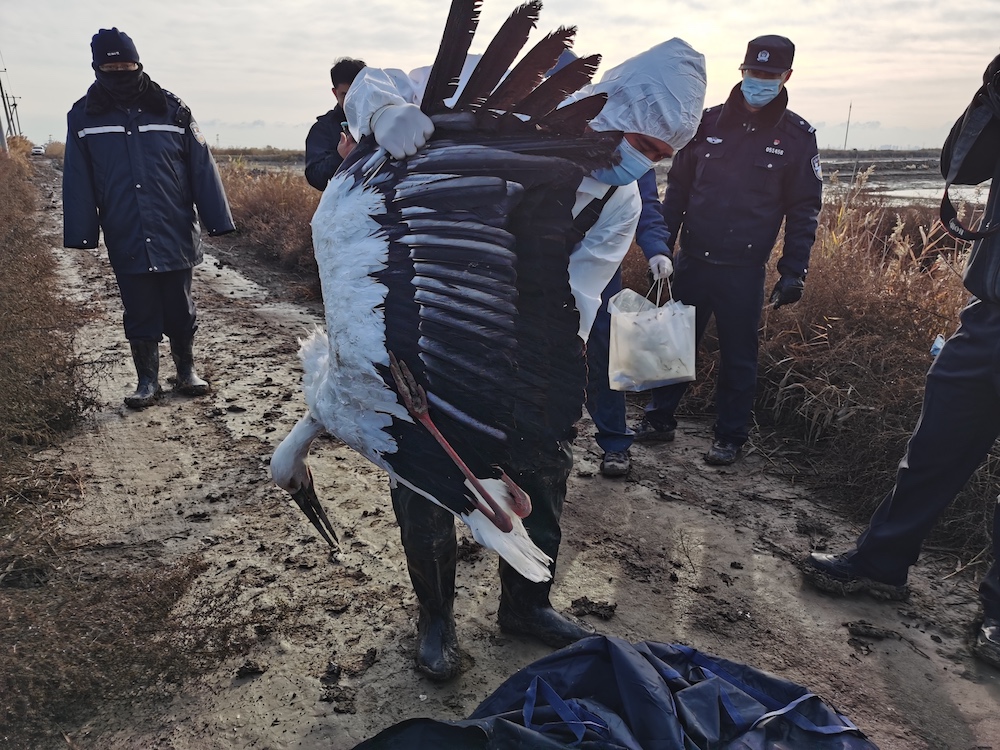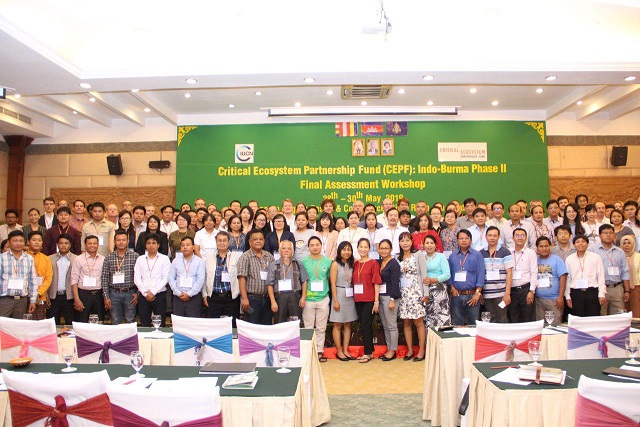Community Conservation Area volunteers safeguard 5,000 wintering Oriental Storks in Tianjin, China
CEESP News: by Linda Wong, Jinfeng Zhou and Xiaohong Yang, China Biodiversity Conservation and Green Development Foundation
The coastal city of Tianjin witnessed about 5,000 Oriental storks wintering in 2020, almost doubling the population from previous years. However, the picture may not be all rosy, according to volunteers of the China Biodiversity Conservation and Green Development Foundation (CBCGDF).
CCAfa volunteers reported the cases to local authorities, Photo by WANG Jianmin
The Oriental stork (Ciconia boyciana) is one of China’s first-class nationally protected animals, listed as an Endangered Species in the IUCN Red List of Threatened Species. The coastal city of Tianjin is an important wintering ground for these birds. According to a survey by the Community Conservation Area (CCAfa) volunteers of China Biodiversity Conservation and Green Development Foundation (CBCGDF) in Tianjin, the population of oriental storks has increased significantly in 2020. In fact, approximately 5,000 of these birds have been spotted wintering in the area, more than doubled from last year. Some media reports attributed the exceptional growth of the birds to the improvement of the local environment, however, CCAfa volunteers in the field disagree with these reports for the following reasons:
1) The species experienced food shortage and human-bird conflicts. The water levels of Beidagang and Qilihai Wetlands (both are Protected Areas, PAs) in Tianjin are too high for these birds to feed.
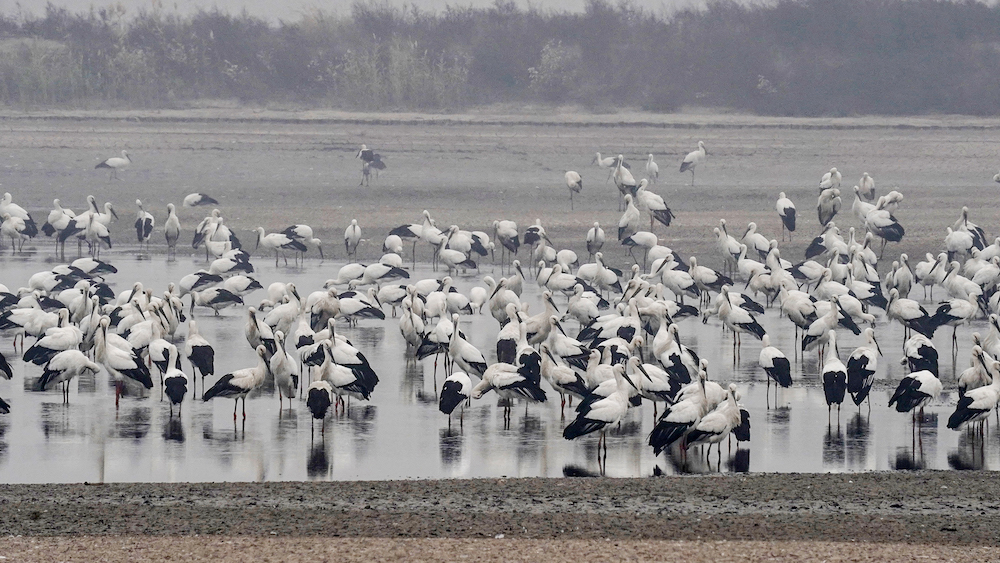 Photo: WANG Jianmin
Photo: WANG Jianmin
Oriental Storks in a rented pond of Tianjin. Public donated to support the CCAfa volunteers and a pond has been rented for the storks to stay and feed.
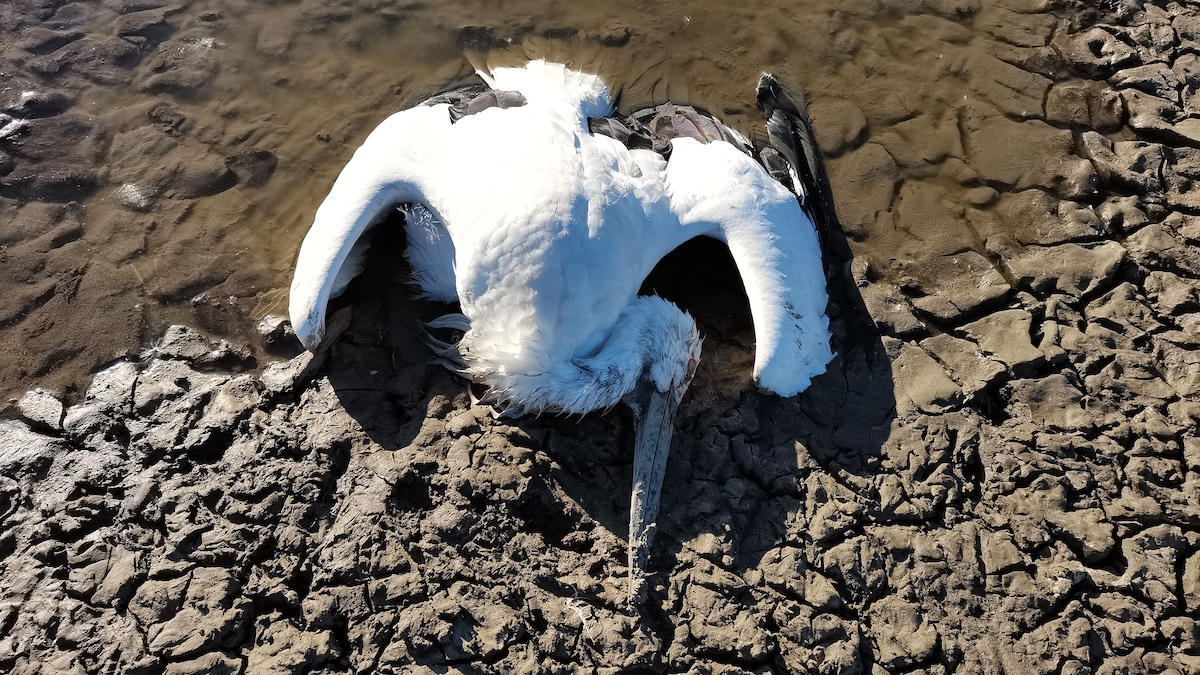 Photo: WANG Jianmin
Photo: WANG Jianmin
Oriental Stork suspected of poisoning
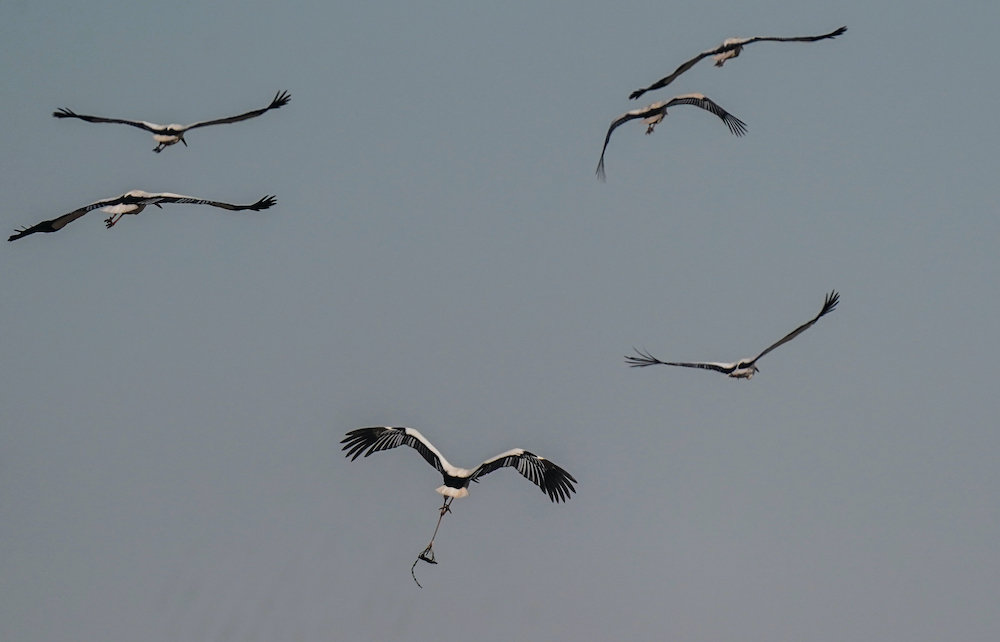 Photo: WANG Jianmin
Photo: WANG Jianmin
A trapped oriental stork rescued by CCAfa volunteers, photo by Wang Jianmin
Solid conservation plans are needed to better protect these endangered bird species. Possible suggestions are listed below:
a) Oriental storks should be clearly prioritized as the main protected species by the administrations of Qilihai and Beidagang Wetlands (Tianjin), and Caofeidian Wetlands (Tangshan).
b) Carry out epidemiological studies to identify the causes of death of the oriental storks. The deaths, which are considered exceptional by experts, has been reported by TVs and newspapers. The general public has been calling for a thorough investigation to the causes of these deaths. Authorities designated several institutes to carry out laboratory analyses. The outcome of these analyses, however, were not consistent with the observations of the volunteers in the field, who reported these cases.[iv] The CBCGDF, in cooperation with some researchers, have requested additional examinations of the bodies of the birds, but the request has not yet been approved by the local government.[v]
c) Effective conservation partnership and improved conservation strategies are needed. Conservation partnership, a platform that facilitates the dialogue among stakeholders, is needed to improve the conservation of endangered species. A long-term public participation mechanism should be in place to ensure the effectiveness of PAs, and the building of an ecological civilization.
d) Establishment of ecological compensation policies. The volunteers’ conservation efforts received support from public donations, which are used to rent a fish-pond for the 5,000 storks to feed. But this is only a temporary solution. To reduce the human-wildlife conflicts, proper compensations should be implemented by the government to the farmers for their losses caused by the feeding birds.
We thank CCAfa volunteers and Dr Sara Platto for their contribution to this article.
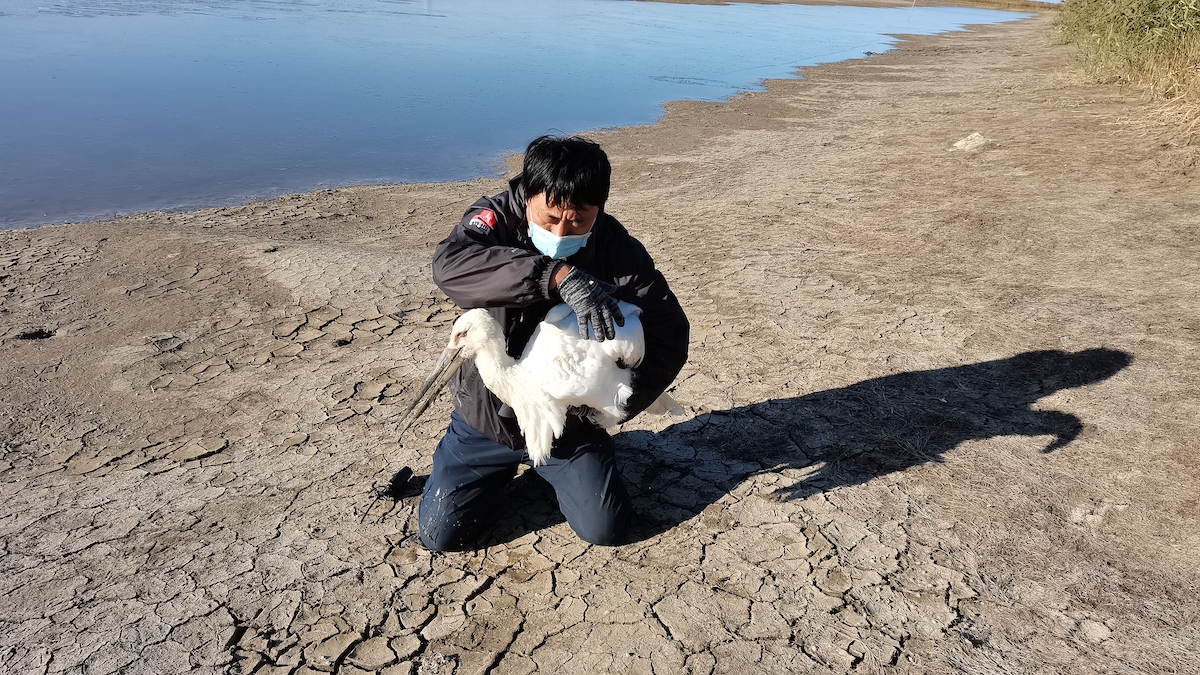 Photo: WANG Jianmin
Photo: WANG Jianmin
[i] Ziniu News: A Stork Flies with a Trap, and Volunteers Stay in Wild for 3 days to Save it (2020-12-11)
https://www.thepaper.cn/newsDetail_forward_10350756
[ii] CBCGDF: Tianjin CBCGDF CCAfa volunteers successfully released two rescued Oriental White Storks (2020-12-31)
http://www.cbcgdf.org/NewsShow/4854/14912.html
[iii] CCTV: The Wounded and Amputated Oriental Stork Returned to its Team Smoothly (2020-12-28)
https://new.qq.com/rain/a/20201227A0CIBM00
[iv] CCTV: The cause of death of 31 Oriental white storks in Tianjin has been found and man-made poisoning has been ruled out (2020-12-4)
http://www.chinanews.com/sh/2020/12-04/9354008.shtml
[v] CBCGDF: Calling for additional examinations to the death of the oriental white storks (2020-12-29)
http://www.cbcgdf.org/NewsShow/4854/14871.html
